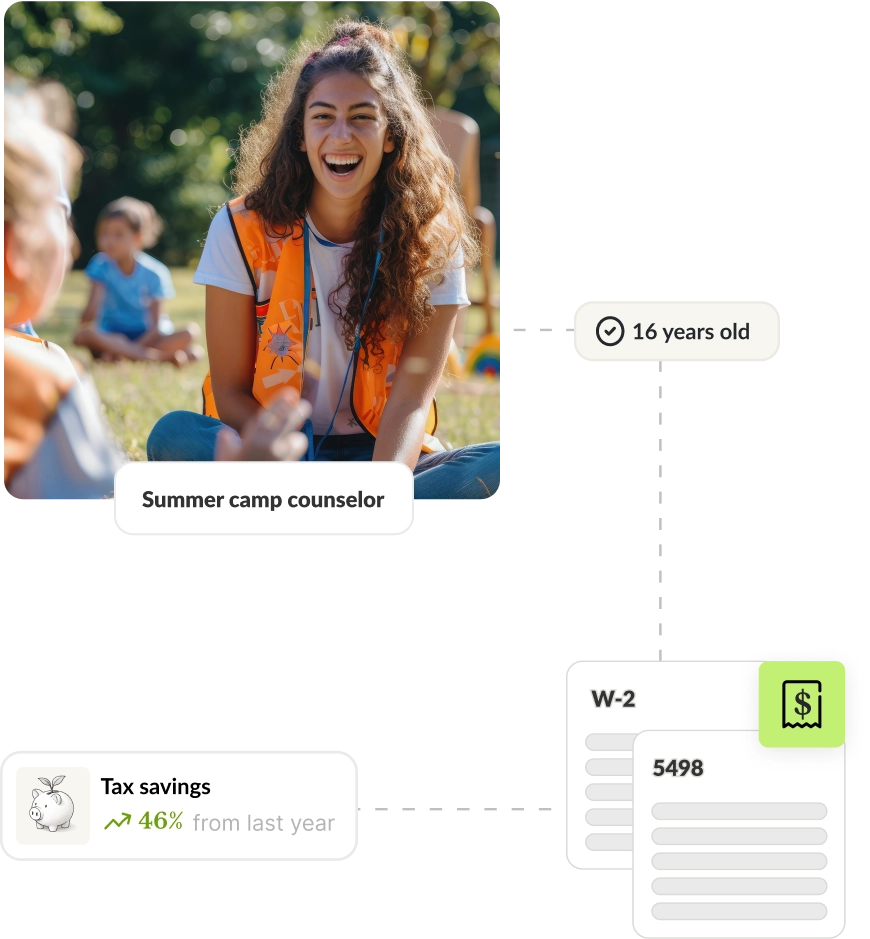2025 Washington State Tax Deadlines
Washington State tax landscape for 2025
Washington State stands out as one of only nine states in the United States that does not impose a state income tax on Individuals or businesses. This unique tax environment makes Washington an attractive destination for both residents and C Corporations, though certain specialized taxes and considerations apply for 2025.
Washington business tax information for 2025
No state income tax for businesses
Washington does not impose a state income tax on business entities, providing significant advantages for:
- S Corporations operating in the State
- Partnerships and LLCs
- Sole proprietorships and independent contractors
- Multi-state corporations seeking tax-efficient structures
Alternative business taxes
While Washington doesn't impose income taxes, businesses may be subject to:
- Business & Occupation (B&O) Tax based on gross receipts
- Sales and use tax obligations
- Property taxes on business assets
- Employment-related taxes and contributions
B&O tax considerations for 2025
Washington's B&O tax applies to gross business income without deduction for operating costs. Key 2025 updates include:
- Service businesses with annual gross income over $5 million face increased rates from 1.75% to 2.1% starting October 1, 2025
- Enhanced B&O tax surcharge rates for specified financial institutions
- Advanced computing businesses continue to pay additional workforce education fund surcharges
Washington Individual tax considerations for 2025
No state income tax for Individuals
Washington Individuals enjoy the benefit of no state income tax on wages, salaries, retirement income, or Social Security benefits. This provides significant advantages for:
- High-income earners seeking tax efficiency
- Retirees looking to maximize fixed incomes
- Investment income recipients
- Traditional 401k plan distribution planning
Capital gains tax for high earners
Washington imposes a 7% tax on long-term capital gains exceeding $270,000 (2025 threshold) from the sale of stocks, bonds, and business interests. Enhanced rates apply for 2025:
- Standard 7% rate on gains above $270,000
- An additional 2.9% tax on gains exceeding $1 million above the annual exemption
- Combined maximum rate of 9.9% for the highest earners
Who must pay capital gains tax
The Washington capital gains tax applies to:
- Individual taxpayers (not corporations)
- Long-term capital gains (assets held more than one year)
- Gains allocated to Washington State
- Assets exceeding the annual exemption threshold
Exemptions include certain real estate transactions, retirement accounts, and qualified small business stock.
What Washington taxpayers need to know for 2025
Federal tax obligations remain
While Washington imposes no state income tax, residents must still meet federal tax obligations, including:
- Federal income tax returns due April 15, 2026
- Quarterly estimated tax payments if required
- Employment tax obligations for businesses
- Information returns as required
Washington Working Families Tax Credit
Washington offers the Working Families Tax Credit (WFTC) for eligible low-income households. Key requirements include:
- Meeting income thresholds for family size (similar to federal EITC)
- Being at least 25 years old and under 65 OR having one qualifying child
- Filed a federal return the previous year claiming the WFTC
- Being eligible for federal EITC or filing with an ITIN
Property and sales tax considerations
Washington residents face other significant taxes, including:
- State sales tax rate of 6.5% plus local taxes up to 4.1%
- Property taxes based on assessed value (average effective rate 0.84%)
- Potential vehicle tax deduction opportunities for business use
Washington's unique tax advantages for 2025
Business-friendly environment
Washington's tax structure provides several competitive advantages, including:
- No Corporate income tax encourages business formation
- Strong privacy and asset protection laws
- Flexible business entity structures
- Home office deduction opportunities for remote workers
Estate tax considerations
Washington maintains an estate tax with rates increasing for 2025:
- $3 million exclusion amount (no tax on estates below this threshold)
- Progressive rates from 10% to 35% for taxable estate values
- Top marginal rate of 35% for taxable estates exceeding $9 million
- Enhanced deductions for qualified family-owned businesses and farmland
Strategic tax planning opportunities
Washington's unique tax environment creates opportunities for:
- Tax planning strategies around capital gains timing
- Business structure optimization
- Multi-state tax efficiency planning
- Savings strategies for high-income earners
Important deadlines for Washington residents
Federal tax deadlines apply
Even without state income tax, Washington residents must meet federal deadlines:
- Individual tax returns due April 15, 2026
- Quarterly estimated payments are due throughout the year
- Business tax returns according to entity type
- Capital gains tax payments are due April 15, 2026, if applicable
Capital gains tax payments
Washington capital gains tax payments are due April 15, 2026, aligning with federal tax deadlines. Taxpayers subject to this tax should make appropriate quarterly estimated payments to avoid penalties.
Sources
- Washington Department of Revenue Income Tax Information
- Washington State Budget Triggers Higher Business and Capital Gains Taxes
Don't miss tax deadlines – Join Instead
While Washington doesn't impose state income tax, federal obligations and strategic planning opportunities remain crucial for maximizing your financial position.
Instead's AI-driven platform does the heavy lifting for you—automatically identifying tax strategies, monitoring your accounts for savings opportunities, and ensuring you claim every deduction to which you're entitled. No more guesswork, no more missed opportunities.
The material discussed on this page is meant for general illustration and/or informational purposes only and is not to be construed as investment, tax, or legal advice. You must exercise your own independent professional judgment, recognizing that advice should not be based on unreasonable factual or legal assumptions or unreasonably rely upon representations of the client or others. Further, any advice you provide in connection with tax return preparation must comply in full with the requirements of IRS Circular 230.
Please note that if any due date falls on a federal or state holiday or weekend, it may be adjusted to the next business day. Always verify current deadlines with the appropriate tax professional and authorities.
Looking for a different year?

























